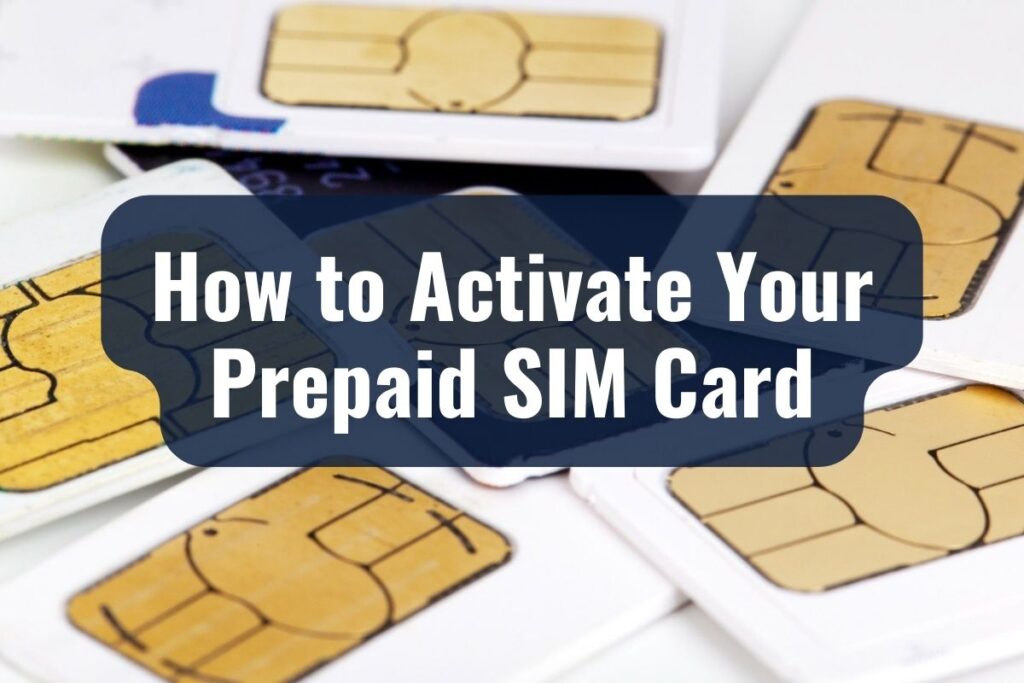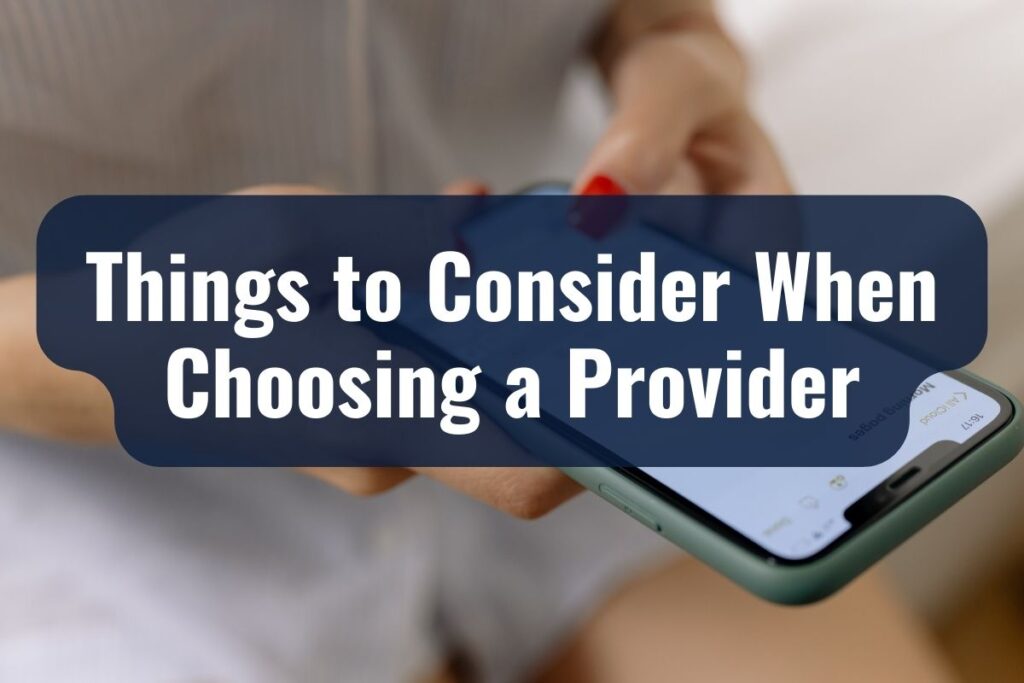For many foreigners in the Netherlands, especially those who may find the Dutch language a tad challenging, a prepaid sim card emerges as a beacon of convenience. It offers not just the freedom to stay connected on your terms but also the flexibility to manage your expenses without the weight of long-term commitments.
Dive in as we unravel how to navigate the world of prepaid sim cards in the Netherlands, ensuring you remain plugged into both the virtual and real beauty the country has to offer. Practical, clear, and tailored for you, this guide aims to be your compass in the Dutch mobile landscape.
Key Takeaways:
- Prepaid sim cards in the Netherlands offer flexibility, cost control, and no long-term commitments.
- Major providers include KPN, Vodafone, T-Mobile, and Lebara, each with distinct offerings.
- Purchase options for sim cards are diverse, from official stores to supermarkets.
- Activation typically requires a simple process, either via a phone call, SMS, or online.
- Factors like coverage, data speeds, and customer support play a pivotal role in choosing a provider.
- Leveraging promotions, using free Wi-Fi, and monitoring data can enhance your prepaid sim experience.
Advantages of Using a Prepaid SIM Card
Navigating a new country can be a journey filled with discoveries, and sometimes, little challenges. Having a dependable communication tool becomes an essential ally in this adventure. Opting for a prepaid sim card, especially in the Netherlands, offers foreigners a range of distinct advantages tailored to their unique needs:
No Contractual Obligations
One of the most significant benefits of a prepaid sim card is its non-commitment nature. Whether you’re in the Netherlands for a few weeks, months, or are undecided about your stay duration, there’s no need to entangle yourself in long-term contracts. Enjoy the freedom of short-term usage without any cumbersome paperwork.
Control Over Spending
Budgeting becomes easier when you only spend on what you need. With prepaid sim cards, you can top up based on your usage, ensuring you never overshoot your mobile expenses. It’s particularly beneficial for students and tourists who may be on a tight budget.
Accessibility and Ease of Purchase
The Netherlands, being a hub of international interactions, ensures that obtaining a prepaid SIM card is a hassle-free experience. From airports to local convenience stores, they’re available at various outlets across the country.
Flexibility of Plans
Different people have different communication needs. Some may prioritize internet data while others may emphasize calling minutes, especially for international calls. Prepaid SIM cards in the Netherlands come with a variety of plans, ensuring there’s something for everyone.
Stay Connected, Worry-free
Lastly, there’s a peace of mind that comes with using prepaid services. No unexpected bills, no hidden charges, just straightforward, pay-as-you-go communication. This clarity allows you to focus on exploring, working, or studying without any mobile-related anxieties.
Top Providers of Prepaid SIM Cards in the Netherlands

As you venture out to get your prepaid sim card, knowing the top providers can help streamline your decision, ensuring you receive quality service catered to your needs. Let’s delve into the cream of the crop:
| Provider | Noteworthy Features |
| KPN | Comprehensive coverage, various package options |
| Vodafone | High-speed data, international call packages |
| T-Mobile | Competitive data packages, widespread coverage |
| Lebara | Specializes in international calls, flexible data options, no contracts |
Lebara
A favorite among many foreigners, Lebara shines when it comes to international calls. If you find yourself frequently dialing numbers outside of the Netherlands, Lebara’s competitive international call rates might just be the ticket. Not to mention, their user-friendly English interface and straightforward plans make navigation a breeze.
KPN
The legacy of Dutch telecom, KPN is synonymous with expansive coverage. From the bustling streets of Rotterdam to the serene countryside of Zeeland, with KPN, you can be assured of strong signals and consistent service. Their prepaid plans are varied, catering to both data enthusiasts and call-centric users.
Vodafone
A globally recognized brand, Vodafone brings its expertise to the Dutch shores with versatile plans and services. With an emphasis on fast data services and a plethora of top-up options, Vodafone ensures you’re always a click away from your digital needs.
T-Mobile
Speed and reliability are the hallmarks of T-Mobile. If your daily routine is heavily intertwined with online browsing, video calls, or streaming, T-Mobile’s impressive internet speeds will keep the buffer at bay. Their range of prepaid plans is also commendable, offering options for varied user profiles.
Where to Buy a Prepaid SIM Card
The Netherlands, with its vibrant international community and focus on ease of access, ensures that acquiring a prepaid sim card is a breeze. Let’s guide you through the most convenient and popular places to purchase one:
Airports
As soon as you touch down in the Netherlands, you’re in luck. Major Dutch airports, including Schiphol and Eindhoven, have kiosks and stores dedicated to telecom services. You can easily grab a sim card right after your arrival, ensuring you’re connected even before you step out into the beautiful Dutch landscapes.
Supermarkets
The Dutch supermarkets aren’t just a haven for delicious stroopwafels and cheeses. Chains like Albert Heijn and Jumbo often have a telecom section where prepaid sim cards of various providers are readily available. It’s a handy option, especially if you’re picking up some groceries after settling into your accommodation.
Local Stores
Across cities and even in smaller towns, you’ll spot mobile shops and electronics stores. These establishments typically stock prepaid sim cards from multiple providers, giving you a variety to choose from. Staff in these stores often speak English, ensuring a smooth purchase experience.
Online
If you’re the kind who loves planning ahead or simply prefer the comfort of your residence, several providers allow you to order sim cards online. They’ll deliver it right to your doorstep, ensuring you don’t have to step out. It’s especially useful if you’ve moved to the Netherlands for a longer stay and have a permanent address.
How to Activate Your Prepaid SIM Card

Stepping into the world of Dutch connectivity, once you have your prepaid SIM card in hand, the next crucial step is activating it. Thankfully, the process is designed with clarity and simplicity in mind, ensuring that even if you’re new to the Netherlands or unfamiliar with technical nuances, you’ll find it straightforward. Let’s walk you through the activation process, step by step:
- Inserting the SIM Card:
- Begin by turning off your mobile device.
- Remove the current SIM card from your device if there’s one.
- Using the sim card ejector tool (often provided with your device) or a paperclip, open the sim card tray.
- Place the new prepaid SIM card in the tray, ensuring it aligns with the tray’s shape.
- Reinsert the tray into the device and turn your device on.
- Initialization:
- Upon turning on, most devices will recognize the new SIM card automatically. You might see a network name or signal bars at the top of your device’s screen.
- Activation Process:
- For some providers, simply inserting the SIM card and making a call or sending a text completes the activation process.
- For others, you might need to send a specific code via text or call a particular activation number. This information is typically provided in the sim card’s accompanying manual or the package.
- Setting Up Data and Internet:
- If your mobile data isn’t working immediately after sim card activation, you might need to set up the Access Point Name (APN). The APN details are generally provided in the sim card package.
- Go to your device’s settings, find the ‘Mobile Network’ or ‘Cellular Network’ option, and enter the provided APN details.
- First Top-Up:
- Some sim cards come preloaded with a small balance, while others require an initial top-up. Depending on your provider, you can top-up online, via a dedicated app, or at physical stores.
- Confirmation:
- Once activated, most providers will send a welcome message or an activation confirmation via text, ensuring you’re good to go.
Costs and Top-Up Options
In the heart of the Netherlands, where the harmonious blend of tradition meets innovation, your connectivity should be both efficient and cost-effective. When opting for a prepaid SIM card, understanding the associated costs and the diverse top-up options available is pivotal. Let’s demystify these elements for you:
Average Price Range of Starter Packs
Prepaid SIM cards typically come in what’s called a ‘starter pack’. These packs generally include the sim card and sometimes, a small initial credit.
The cost for these starter packs can range from €5 to €20, depending on the provider and the inclusions. Some might offer promotional data or call minutes, while others might focus on basic connectivity.
Top-Up Denominations
Once you exhaust the initial credit or if your pack doesn’t include any, you’ll need to top up. The Netherlands offers a variety of top-up denominations to cater to different needs, starting from as low as €5 and going up to €50 or more.
Different Top-Up Options Available
In-store: Most supermarkets, convenience stores, and mobile shops offer prepaid top-up vouchers. You purchase a voucher and follow the instructions, usually involving entering a code on your device.
Online: Providers typically have online portals where you can top-up using credit/debit cards or local payment methods like iDEAL.
Via App: Several providers have dedicated mobile apps, making top-ups just a few taps away. These apps often also provide insights into your usage, allowing for better budget management.
ATM Machines: Some ATMs, especially those affiliated with major banks, offer a top-up service for prepaid sim cards.
Special Deals or Discounts
Keep an eye out for promotional offers, especially during festive seasons or special occasions. Providers occasionally offer bonus data, extra call minutes, or discounts on top-ups.
Students might also find special packages or discounts tailored to their needs, given the large international student community in the Netherlands.
Validity
Remember that the credit you top-up often comes with a validity period. Ensure you use your balance within this period, or you might lose it. The validity usually ranges from a month to even a year, based on the top-up amount.
Things to Consider When Choosing a Provider

The Netherlands, with its rich tapestry of culture, innovation, and connectivity, presents a plethora of options when it comes to choosing a prepaid sim card provider. However, selecting the one that aligns perfectly with your needs is vital. To ensure your Dutch communications journey is as smooth as possible, consider these key factors:
- Coverage: The essence of a mobile provider lies in its network coverage. Ensure that the provider offers strong signals, not just in urban areas but also if you’re venturing into less populated regions or the picturesque Dutch countryside.
- Data Speeds: In today’s digital era, reliable and fast internet is indispensable. Look into the provider’s data speeds, especially if you’ll be streaming, video conferencing, or using data-intensive apps.
- Cost-Effectiveness: While initial costs matter, also consider the rates for calls, texts, and data. Some providers might offer cheaper starter packs but have higher usage rates, or vice-versa. Weigh these aspects based on your expected usage.
- International Calling Rates: For many foreigners in the Netherlands, staying in touch with loved ones back home is crucial. Examine the international calling rates, especially for your home country, and any special international packages on offer.
- Ease of Top-Up and Balance Check: The frequency of your top-ups and the ease with which you can check your balance could influence your provider choice. Providers with multiple top-up options and simple balance check methods can offer a seamless experience.
- Customer Support: Challenges can pop up, and when they do, having a provider with efficient and English-speaking customer support can be a lifesaver.
- Special Packages or Deals: Some providers roll out tailored packages for students, tourists, or specific groups. These might offer better value for money or features that cater directly to your needs.
- Reviews and Recommendations: Often, the experiences of fellow foreigners can be enlightening. Check online forums, expat groups, or ask around in your community for provider recommendations and reviews.
- Language Accessibility: While most major providers offer services in English, ensure that their online portals, apps, and any physical documentation are available in a language you’re comfortable with.
Related: New to the Netherlands: Everything You Need To Know
Tips and Tricks for Using Prepaid SIM Cards in the Netherlands
The art of maximizing the utility of a prepaid SIM card in the Netherlands lies not just in the basics, but also in knowing those little nuances that make the experience efficient and hassle-free. As you gear up to immerse yourself in everything Dutch – from the historic windmills to the bustling bike lanes – here are some practical tips and tricks for using your prepaid sim card:
- Stay Informed on Promotions:
- Providers often run promotions where you can get bonus data or additional call minutes. Stay updated by checking their website, app, or subscribing to their notifications.
- Use Wi-Fi Whenever Possible:
- The Netherlands boasts a plethora of free Wi-Fi spots, from cafes to libraries. Utilize these to save on your data consumption, especially for data-intensive tasks.
- Monitor Your Usage:
- Keep a tab on your data, call minutes, and text usage. Many providers offer apps that provide real-time usage stats, ensuring you’re never caught off guard.
- Set Data Limits:
- To avoid unexpected data consumption, consider setting a data limit on your smartphone. This ensures you won’t go beyond a certain amount of data usage unintentionally.
- Beware of Roaming:
- If you’re traveling to nearby countries, ensure your prepaid plan supports roaming, or consider buying a separate roaming package. Without these, costs can quickly escalate.
- Utilize VoIP Services:
- For international calls, sometimes using VoIP services like Skype, WhatsApp, or Zoom can be more cost-effective than direct dialing, especially if you’re on Wi-Fi.
- Keep Your Old SIM Card:
- While it’s tempting to forget about your original SIM card, keep it safe. You might need it when you return home or for any two-factor authentication processes linked to your original number.
- Ask for Assistance:
- Dutch locals are known for their helpfulness and proficiency in English. If you face any issues or confusion, don’t hesitate to ask someone nearby or a store assistant.
- Expiration and Validity:
- Prepaid SIM cards often have an expiration date, beyond which the number might be deactivated if not used. Ensure you’re aware of this date, especially if you’re in the Netherlands for an extended stay.
- Back Up Important Data:
- Before switching sim cards, back up important data, contacts, or any critical information from your phone. It ensures no data loss during the transition.
Additional Resources
Websites like the Dutch subreddit can be goldmines of user experiences, recommendations, and tips from those who’ve walked the path before you.
For regulations, rights, or any official information on telecom services, the Dutch government’s official website provides reliable and up-to-date details.
Located in major cities and tourist spots, these centers provide a range of information, including details on local mobile connectivity options, ensuring tourists are always connected.
If you ever come across Dutch language instructions or information, apps like Google Translate can be lifesavers. They offer instant translations, making comprehension easy.




Hi Do you know if any of the prepaid sims support VoLTE / VoWifi?
Yes, some prepaid SIM cards in the Netherlands do support VoLTE and VoWiFi. Providers such as KPN, Vodafone, and T-Mobile often include these features in their prepaid offerings. However, it’s always a good idea to double-check with the specific provider to confirm that these services are supported on the prepaid plan you are considering.